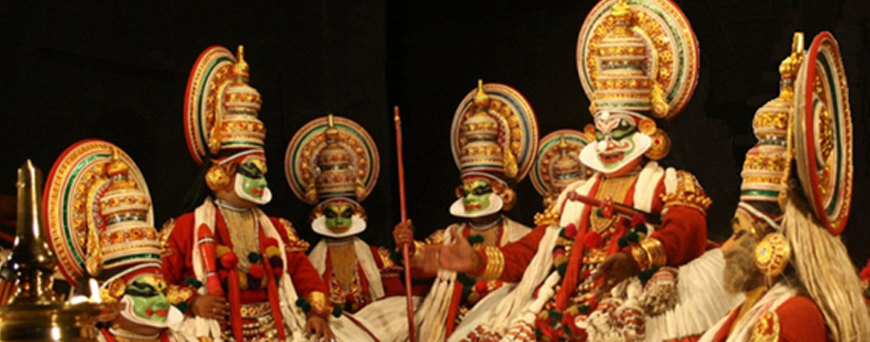Culture of Kerala
The culture of Kerala is a combination of both Indian and Dravidian culture, defined by its antiquity and the organic continuity sustained by the Malayali people.
There is a great impact of neighbouring and overseas on Kerala culture with influences from China, Japan, Arab countries, Portugal, Holland and even from the British. There are a lot of Tamil-Sanskrit elements, resulting in many unique practices and customs.
Kerala is well known for its cultural diversity. Hinduism and Islam are the two major religions of Kerala. More than 50% of people in Kerala follow Hinduism, and more than 25% follow Islam. Around 20% are Christians, and others follow Buddhism, Jainism, Judaism and other religions.
The main USP of Kerala is its performing art like Martial Art of Kalaripayattu.

Generally Kerala people follow the Malayalam calendar, which is a solar sidereal calendar started from 825 CE in Kerala, usage in planning agricultural and religious activities.
Malayalam, one of the classical languages in India, is Kerala's official language.
Kerala is also known for its dances. It has around 50 forms of dances. Among these Theyyam, Thiruvathirakali, Chakyar Koothu Koodiyattam and Ottamthullal are some of the prominent dances of Kerala which originated and developed in the temple theatres during the classical period under the patronage of royal houses.
‘Kathakali’ and ‘Mohiniyattam’ which attracts tourists from world-wide.

Elephants have been an integral part of the culture of the state. Almost all of the local festivals in Kerala include at least one richly caparisoned elephant. Kerala is home to the largest domesticated population of elephants in India—about 700 Indian elephants, owned by temples as well as individuals. These elephants are mainly employed for the processions and displays associated with festivals celebrated all around the state.
Kerala is musically known for Sopana Sangeetham. Sopana Sangeetham is a form of classical music that originated in the temples of Kerala. Sopanam is religious in nature, and developed through singing invocatory songs at the Kalam of Kali, and later inside temples.
Most of the castes and communities in Kerala have rich collections of folk songs and ballads associated with a variety of themes; Vadakkan Pattukal (Northern Ballads), Thekkan pattukal (Southern Ballads), Vanchi pattukal (Boat Songs), Mappila Pattukal (Muslim songs) and Pallipattukal (Church songs) are a few of them.